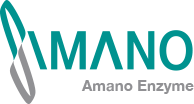One in every four people in Japan is over the age of 65. In order to continue living an active lifestyle, it’s important for the elderly to take in plenty of nutrition from daily meals. However, as people get older, the functionality of their stomach and intestines tend to decrease. Self-medication is recommended for these symptoms, such as oral administration of a digestive enzyme formula.
As the body ages and stomach changes, people tend to eat less at meals, in line with a decrease in overall daily activity. Because of this, a sufficient amount of nutrients are not being absorbed to live a healthy lifestyle in many cases. When looking at people other than the elderly, a change in dietary habits has led to a higher intake ratio of animal proteins and fats compared to long ago. Since foods high in proteins and fats tend to delay gastric emptying from the stomach, they are thought to be related to gastrointestinal symptoms such as stomach pain due to slow digestion.
In order to make up for gastrointestinal symptoms and reduction in gastrointestinal functionality due to the insufficient secretion of digestive enzymes caused by aging, it is useful to take digestive medicine containing digestive enzymes. Research results have indicated that administering digestive medicine to the elderly improves their digestion and nutrition absorption, providing proof that digestive enzyme formulas are indeed beneficial to improving nutrition intake. Digestive enzyme formulas have been used for over 100 years in Japan since Dr. Jokichi Takamine developed Taka-Diastase. For more than half a century, they have been used to improve symptoms of indigestion, and pancreatic enzyme replacement therapy for exocrine pancreas functional disorders. Even today, they are used widely in the treatment of digestive organs.
Amano Enzyme is participating in awareness activities to stress the benefits of digestive enzymes in digestion and absorption, as a part of self-medication for the elderly. Since 2013, institutes such as the Japan Pancreas Society, Japan Digestive Disease Week, and General Meeting of The Japanese Society of Digestion and Absorption, have been holding luncheon seminars, setting up business booths, and giving oral presentations on the topic. Information has also been published in academic journals such as “Journal of Biliary Tract & Pancreas 2016, Vol. 37, No. 2,” “Digestion & Absorption 2016 Vol. 38, No. 2,” and the Medical Tribune, with TV programs touching on the benefits as well.
By increasing awareness of the benefits digestive enzyme formulas can offer, we hope to contribute to a healthier lifestyle for everyone.


